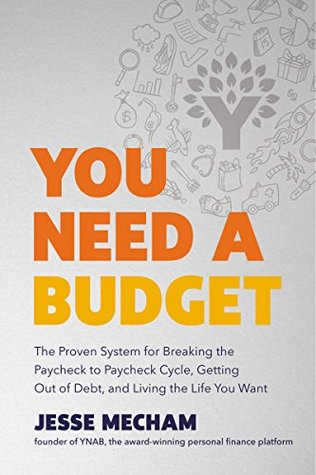More on this book
Community
Kindle Notes & Highlights
by
Jesse Mecham
Read between
February 24 - March 3, 2019
The moment you let your priorities lead, you’ll find that many of your anxieties around money—and the jitters you thought weren’t about money at all—quickly disappear.
It doesn’t actually matter how much money we have or don’t have. Scarcity is simply that feeling of wishing there were more.
You won’t feel confident about your money decisions unless you dig deep to figure out what really matters to you.
Does this move me closer to my goal?
Take the time to think about what makes you happy and add those things to your budget—even if they’re just ambitious notes right now, with no dollars yet available for them.
That means your debt is literally stealing from your ability to fund your current priorities.
Lifestyle creep is when the cost of your lifestyle rises in tandem with your income.
There’s the no-plan approach to planning, where you’re just working off of fleeting thoughts. Slim chance you’ll achieve much with that.
it’s okay to change your budget.
You have to change your budget if you ever expect to stick with it.
“It blows my mind how much of a difference it makes eating out a few times a month rather than a few times a week,” Alex says. After having this realization, he started bringing his lunch from home a lot more often.
Even being a single paycheck ahead relieves so much stress and worry from day-to-day life.”
WeWorkRemotely.com is a great site for finding reputable telecommuting jobs.
like when you both pause googly-eyed in front of the Costco TV displays (always as soon as you walk in). You stop for a second, then keep walking because you both know your not-so-smart TV is just fine,
If you fiercely believe that debt is not an option, you will find another way to hit your goals.
Don’t let lifestyle creep steal your raise by convincing you it’s okay to let loose a little. Stay focused on hitting your big goals.
These days Mitchel works at a mortgage company, and the irony runs deep. That house he’s saving for? He plans to buy it in cash. He hates the idea of going back into debt, even for something like a mortgage (don’t tell his boss!). So he’s keeping up with his $45K lifestyle, despite the fact that he now earns over $120K. The rest is stashed for his dream home. I have no doubt he’ll get it even sooner than he’s planned.
Debt is not an option. Embracing this motto will change your life.
New York Times columnist Ron Lieber wrote an excellent book about raising kids who are smart with money called The Opposite of Spoiled. Among his advice is a deep dive into how to talk with kids about money.
I’m a big advocate of giving kids an allowance so they can start learning how to manage money early.
I sit down with my kids as they budget every week. Once they set aside 10% for giving and half of the rest for saving, the rest is up to them.
What do I want my money to do for me? What do I want my life to look like?
Now they have total control over their friends’ and siblings’ birthday gifts. They get excited thinking about what to buy, and even spy for clues on what a friend might like when they’re hanging out. They’d barely thought about it before. Julie or I would just pick up a gift while running errands. Paying for it themselves has made them more thoughtful gifters. It’s fun to watch as a parent.
Jon can see Anna’s bank account, since it’s linked to his. He knew she had a few thousand dollars in there at the time. How can a teenager be set free in a mall with thousands to her name and not spend a thing? Priorities. Anna has lots, and it happens that she can’t fulfill any of them by buying stuff at the mall. These are her budget categories right now:
“I’d rather have amazing experiences than own a bunch of crap.”
I eventually did tell Julie and she was right there with me. Turns out she’d nearly broken down over a missed connection with a croissant the week before. (Our love for baked goods unites us.)
A (hopefully) small transaction will hit your account that you can’t, for the life of you, remember. You can drive yourself nuts trying to figure it out, or assign it to a spending area that has available funds and move on.
Getting OCD on your budget. Let the little things go.


